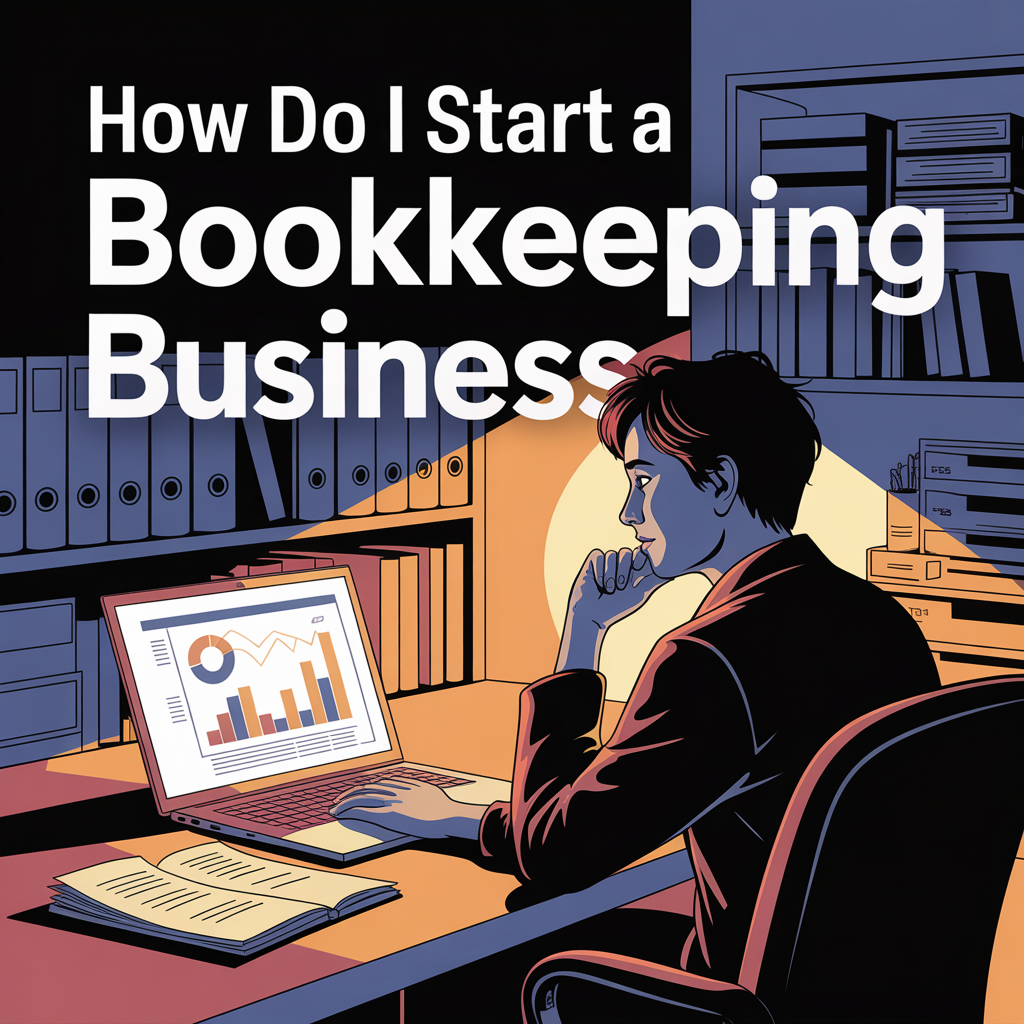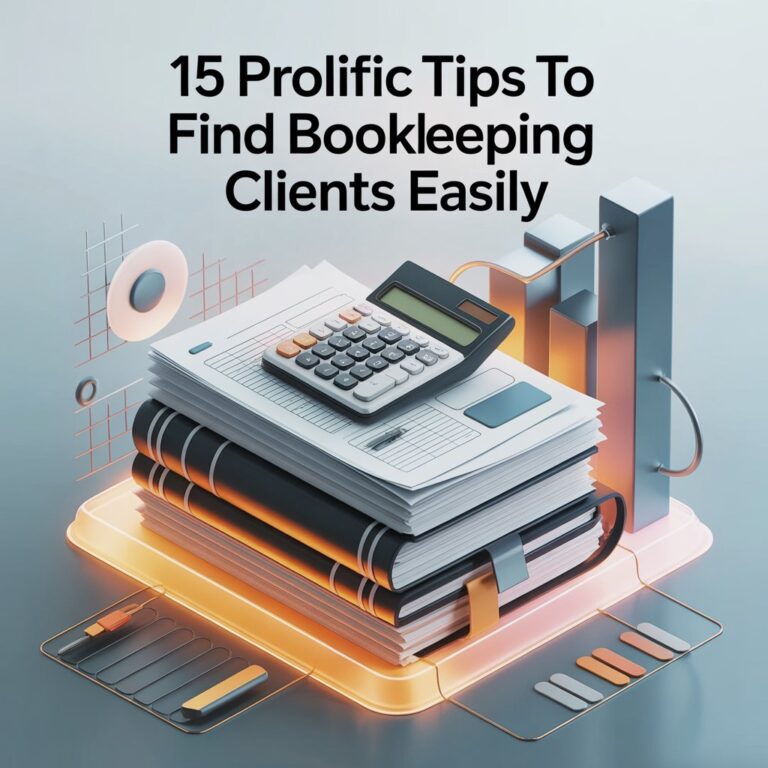Starting your own bookkeeping venture offers the freedom to work on your terms, serve a variety of clients, and generate consistent income. How do I start a bookkeeping business is a question that often comes up among aspiring entrepreneurs, especially those with a knack for numbers and an eye for financial accuracy. Whether you’re looking to escape the limitations of a 9-to-5 job or you want to offer remote accounting services, the bookkeeping industry is ripe with opportunity. You don’t need to be a CPA to get started—basic financial knowledge, some business planning, and the right tools can get you well on your way. With the growth of online services and cloud-based technology, even launching a book-keeping business from home is more feasible than ever. This guide outlines everything you need to know to make your mark in the industry, from foundational setup to building your brand.
Understanding What a Bookkeeping Business Is
Before diving into operations, it’s essential to understand what is bookkeeping business and what it entails. Bookkeeping involves recording daily financial transactions, reconciling bank statements, managing invoices, and preparing reports that help businesses make informed decisions. Unlike accounting, which focuses more on analysis and tax strategies, bookkeeping deals with the day-to-day financial maintenance.
A book-keeping business offers these services to multiple clients, ranging from startups and freelancers to well-established companies. You don’t need a formal accounting degree to begin, but a strong grasp of basic financial principles and attention to detail are must-haves.
Skills and Qualifications You’ll Need
While you don’t necessarily need a college degree, you’ll benefit greatly from having certain qualifications or certifications. A background in finance, accounting, or business is a plus, but not a requirement.
Here are essential skills for starting a successful bookkeeping business:
- Proficiency in accounting software like QuickBooks, Xero, or FreshBooks
- Understanding of financial statements and double-entry bookkeeping
- Communication and interpersonal skills for dealing with clients
- Organizational skills to manage multiple client files and deadlines
If you’re wondering how to start a bookkeeping business with no experience, consider taking online courses or certification programs such as those offered by AIPB (American Institute of Professional Bookkeepers) or NACPB (National Association of Certified Public Bookkeepers).
Legal and Business Structure Setup
After acquiring the necessary knowledge, the next step is registering your business. Decide on a structure—sole proprietorship, LLC, or corporation. Each comes with its tax implications and liability levels.
Steps to set up legally:
- Choose a business name and register it with your local authority
- Obtain an EIN (Employer Identification Number) from the IRS
- Get necessary licenses or permits based on your location
- Set up a business bank account for financial separation
If you’re located in Florida, aligning with Bookkeeping Services in West Palm Beach, FL regulations may require local licenses or business registration through the city or county.
Choosing Your Niche and Target Audience
To stand out in a competitive field, niche specialization is critical. Identify the types of businesses you want to serve. Do you prefer working with e-commerce shops, freelancers, real estate agents, or restaurants?
Niching helps in:
- Creating tailored marketing messages
- Charging premium rates
- Becoming an industry expert
- Reducing onboarding time due to industry familiarity
Start by researching local businesses or those in your network. A narrow focus allows you to build deeper expertise and more value for your clients.
Setting Up Your Home Office or Online Presence
If you’re asking how do I start a bookkeeping business from home, you’ll need a well-organized, secure, and quiet workspace. Invest in a reliable computer, dual monitors, a secure internet connection, and cloud-based accounting software.
For those looking into how to start an online bookkeeping business, your digital presence is crucial. Build a website showcasing your services, testimonials, contact information, and pricing. Use professional email and project management tools like Trello or Asana to keep tasks in order.
Pricing Your Services
Setting your pricing requires a balance between competitiveness and profitability. Research your market and understand what others charge for similar services. There are three primary pricing models:
- Hourly Rate: Common for new bookkeepers ($30–$80/hour depending on location)
- Flat Fee: Ideal for recurring services such as monthly reconciliations or payroll
- Value-Based Pricing: Premium pricing based on the client’s perceived value of your services
When starting, offering affordable rates helps you attract early clients. As you build experience, you can shift to more profitable pricing.
Marketing and Finding Your First Clients
Getting your first few clients is the hardest part. Use these strategies:
- Leverage LinkedIn to connect with local businesses
- Join business networking groups
- Ask friends or family to refer you
- Offer free consultations to demonstrate value
- Create helpful content about bookkeeping on your blog or YouTube
A great tip is to approach professionals like real estate agents or consultants who often need ongoing bookkeeping but may not have an in-house solution. Knowing how to start a bookkeeping business is only part of the journey—finding clients is the other critical half.
Using Software and Tools Effectively
Modern bookkeeping relies heavily on technology. Your business’s efficiency depends on how well you use automation and software solutions. Here are key tools to consider:
- QuickBooks Online or Xero for core accounting
- Hubdoc or Receipt Bank for document collection
- Calendly for scheduling client meetings
- Slack or Zoom for client communication
Cloud-based tools offer flexibility and allow you to scale your book-keeping business beyond your geographic location.
Scaling Your Business
Once you have a steady stream of clients and solid systems in place, it’s time to scale. You can expand by:
- Hiring subcontractors or junior bookkeepers
- Offering additional services like payroll or tax prep
- Partnering with CPAs or financial advisors
- Automating processes to reduce manual work
Don’t forget to continually evaluate your services, pricing, and customer satisfaction. Scaling doesn’t just mean more clients—it means smarter work.
Managing Compliance and Data Security
Financial data is sensitive, so ensuring security is non-negotiable. Invest in antivirus software, use encrypted cloud storage, and set up multi-factor authentication. For remote access, use secure VPNs.
Also, stay compliant with IRS guidelines and local tax laws. Regularly update your knowledge through continued education and industry news.
Joining Professional Networks
Joining industry associations boosts your credibility and gives you access to valuable resources. Consider:
- AIPB
- NACPB
- Local small business groups or Chamber of Commerce
These networks offer support, continuing education, job boards, and client referrals. They’re an underrated but valuable part of growing a sustainable bookkeeping business.
Final Thoughts
So, how do I start a bookkeeping business? You begin by gaining the necessary knowledge, setting up your business legally, and creating an online or home office space. The middle of your journey involves client acquisition, choosing your niche, and learning how to price and market your services. In the end, scaling through smart tools and partnerships becomes your focus. With persistence and strategic thinking, your bookkeeping venture can thrive in today’s economy—especially with flexible options like offering Bookkeeping Services in West Palm Beach, FL or starting from the comfort of your home.
By focusing on the client’s financial health and maintaining transparent, accurate records, you build long-term trust. Whether you’re starting locally or wondering how to start an online bookkeeping business, the path is achievable, rewarding, and scalable. If you’ve ever asked, how do I start a bookkeeping business, the answer lies in simply beginning—one calculated step at a time.
FAQs
How much does it cost to start a bookkeeping business?
Starting costs can range from $1,000 to $3,000, depending on equipment, software, marketing, and certification expenses. You can reduce costs significantly by working from home.
Do I need a license to start a bookkeeping business?
Not always, but requirements vary by location. Check your state or local government’s guidelines. Some areas require a business license or registration.
Can I run a bookkeeping business part-time?
Yes, many bookkeepers begin part-time while maintaining another job. This approach reduces risk and allows you to grow your client base gradually.
What software should I use for my bookkeeping business?
Popular choices include QuickBooks Online, Xero, and FreshBooks. Each offers various features to automate tasks like invoicing, bank reconciliations, and reporting.
How do I find clients for my bookkeeping business?
Start by networking in local business groups, reaching out on LinkedIn, or offering free consultations. Referrals and testimonials also help build trust quickly.
Is a bookkeeping business profitable?
Yes, especially with low startup costs and recurring revenue from monthly services. Skilled bookkeepers can earn a full-time income even with a handful of clients.
Can I start a bookkeeping business without a degree?
Absolutely. While a degree in accounting or finance helps, practical skills and certifications are often more important. Focus on building experience and credibility.
What services should I offer in my bookkeeping business?
Services may include transaction recording, account reconciliation, payroll processing, and financial reporting. You can also offer add-ons like budgeting, forecasting, and tax preparation support.
Related Blogs




